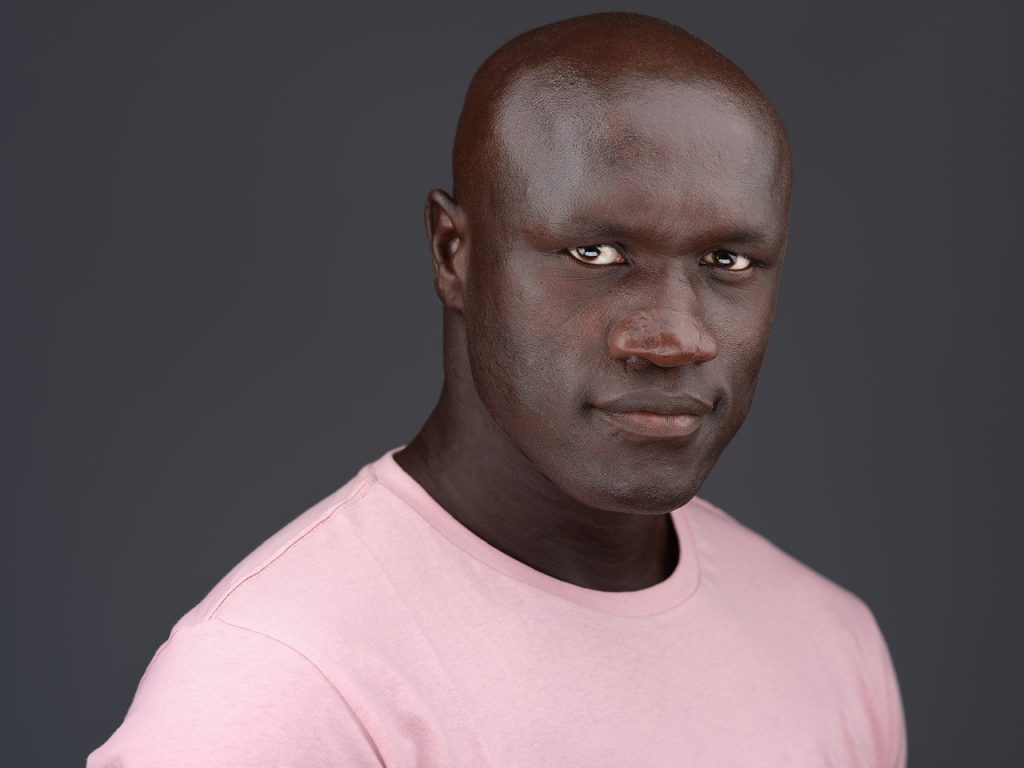SURREY – By day, Gumaa Lodongi is a budding actor studying dramatic arts. By night, he lives at the Emergency Response Centre in Surrey where he has food, shelter and medical care provided by one of Fraser Health’s new Integrated Homelessness Action Response Teams (IHART).
“Being able to get the help and medication I need in one place has really helped me move forward in my life,” says Gumaa.
Unlike conventional models of care where people reach out to the health authority for services, IHARTs reach in – to shelters, isolation centres, homeless encampments, single room occupancy units, and other places where homeless or at-risk individuals may congregate.
“For people without housing or at risk of losing it, getting the health care they need can be very challenging,” says Sheila Malcolmson, Minister of Mental Health and Addictions. “By meeting people where they are, the Integrated Homelessness Action Response Team is able to bring care, including for mental health and substance use disorders, to some of the most vulnerable people in the Fraser Health region. I am grateful for their work delivering quality health care to all people, regardless of location.”
The teams are comprised of nurses, clinicians and support workers who liaise with colleagues in public health, home health and mental health and substance use to ensure clients get care tailored to their needs. There are currently four IHART teams across Fraser Health: Maple Ridge, Burnaby, Abbotsford/Mission and Surrey.
The teams identify and respond to a broad spectrum of health care concerns including mental health and substance use disorders. They stabilize and treat people who have new and chronic conditions, facilitate access to primary care and addictions medicine, and support transition to housing. They work with community groups and government agencies to help clients get the longer-term care and supports they require. They also provide on-the-ground health promotion and prevention.
“Vulnerable populations have a greater need for flexible and accessible models of care,” says Dr. Victoria Lee, president & CEO, Fraser Health. “By bringing services to people in settings that are familiar to them, we can ensure more of our clients have access to the comprehensive services they need within our health system.”
The teams also work with Fraser Health’s Virtual Health Addictions Clinic to provide virtual consultations to people in places where supports typically have not been available.
“This is a game changer,” says Dr. Sarah Mark, medical lead, virtual addiction services, Fraser Health. “We’re seeing people who never had the opportunity to access help for their substance use simply because of where they live.”
Gumaa is currently living in temporary accommodation and sees it as a step on his journey to a better future.
“My journey with schizophrenia has not only been a challenge but truly a blessing in disguise because I have a great mental health team taking care of my needs and wants,” Gumaa says. “Fraser Health is supporting me at the shelter I am staying in. My social worker is helping me find a home. Life is not easy, but I’m on a good path to making a difference, and I’m looking forward to the next part of my life.”
Learn more:
Mental health and substance use supports in Fraser Health:
https://www.fraserhealth.ca/health-topics-a-to-z/mental-health-and-substance-use#.YBNjb6dKg2w
Career opportunities in Fraser Health: https://careers.fraserhealth.ca/



